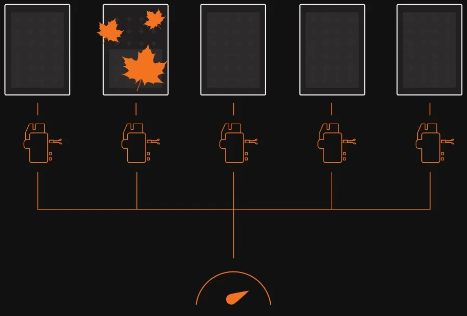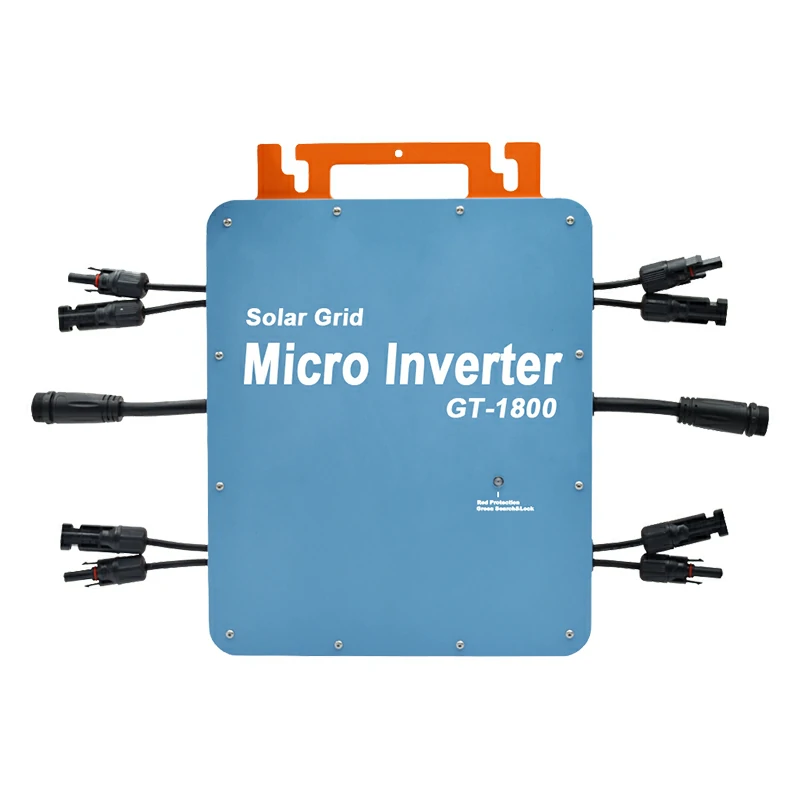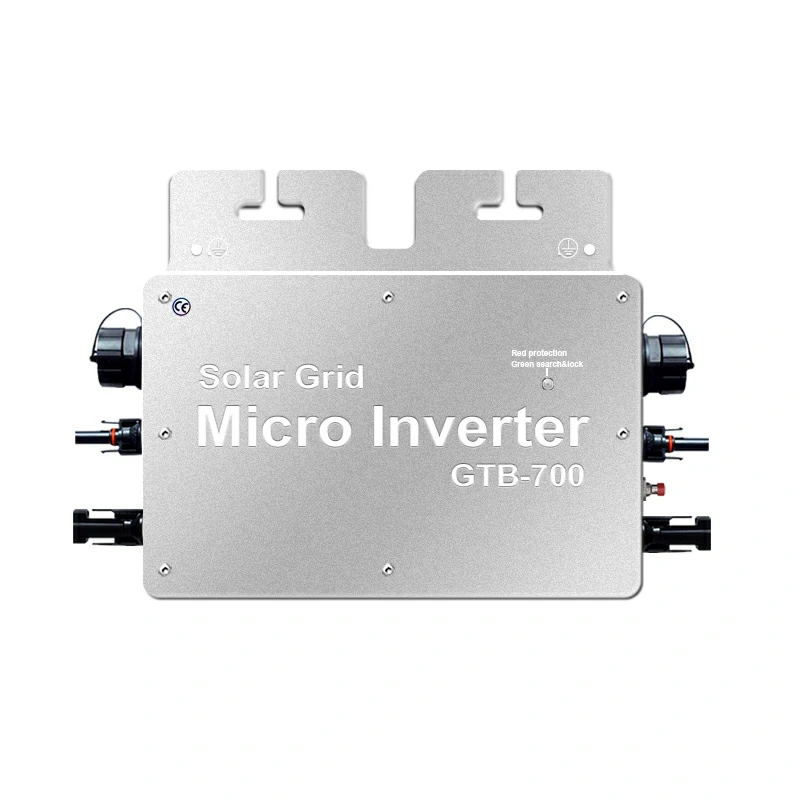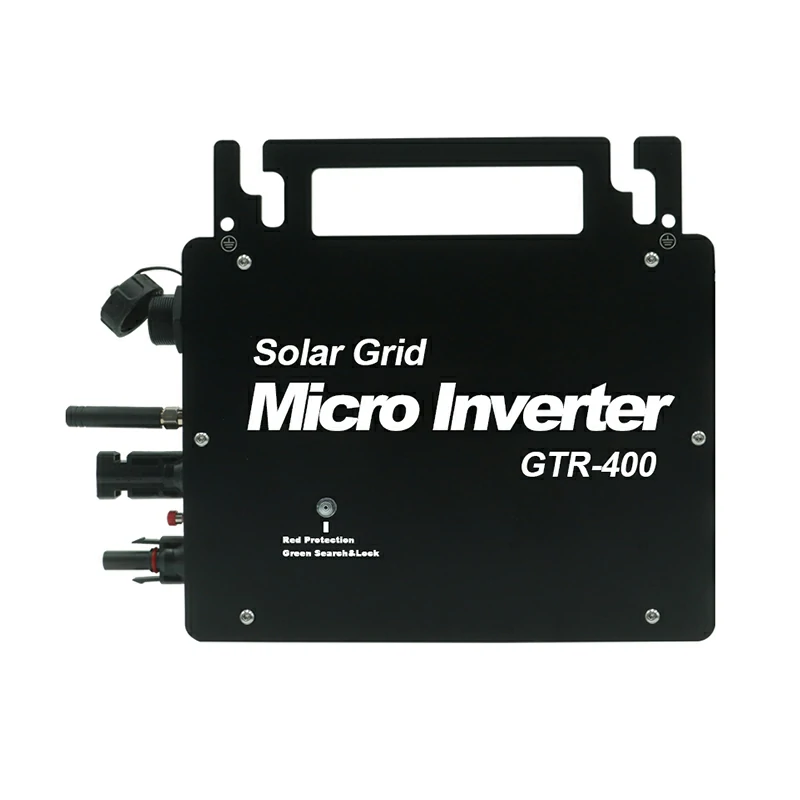Introduction

In the evolving solar energy landscape, micro inverters have emerged as a critical technology driving efficiency and reliability. These small, sophisticated devices are crucial in converting solar energy into usable power for homes and businesses. This article aims to demystify how solar micro inverters work and illustrate their importance in the broader context of solar photovoltaic (PV) systems. Understanding the function and advantages of custom solar micro inverters can be essential for users considering the integration of solar energy solutions provided by specialized micro inverter manufacturers.
Basics of Solar Energy and PV Systems
To understand the role of micro inverters, it’s essential first to grasp the basics of solar energy and photovoltaic (PV) systems. Solar panels, or PV panels, capture sunlight and convert it into electrical energy. This process involves the generation of direct current (DC) electricity as photons from sunlight knock electrons into a higher state of energy within solar cells.
However, the electricity generated by solar panels in its raw form is only readily usable in some home or commercial electrical systems, which operate on alternating current (AC). This is where inverters, specifically solar microinverters, become critical. They bridge the gap by converting the DC electricity produced by solar panels into AC electricity, which can then be used to power electrical devices or be fed into the electrical grid.
What are Solar Micro Inverters?

Solar microinverters are a type of inverter used in solar PV systems but are critically different from traditional inverters. Unlike a standard or string inverter connected to multiple solar panels, a micro inverter is attached to each solar panel. This unique setup allows each forum to operate independently, which can be particularly beneficial in custom solar panel installations where shading or orientation may vary across boards.
Micro-inverters convert the DC electricity generated by each solar panel into AC electricity right at the source. This direct conversion enhances the efficiency of electricity production and reduces energy loss, which can occur with more extended DC wiring runs to a central inverter. Additionally, custom solar micro inverters designed by specialized micro inverter manufacturers can be tailored to meet specific requirements of various solar PV systems, adding flexibility and optimization to solar installations.
Working Principle of Solar Micro Inverters
The core function of a solar micro inverter is to convert the direct current (DC) output of a single solar panel into alternating current (AC). This process involves several steps:
- DC Input: The micro inverter receives DC power from the solar panel. This power varies depending on the sunlight’s intensity and the solar panel’s efficiency.
- Inversion Process: The DC power is passed through a series of electronic components inside the microinverter. These components use sophisticated algorithms to convert DC into AC by changing the direction of the current at a regular frequency, typically identical to the grid frequency (e.g., 60 Hz in the United States).
- AC Output: The resulting AC power is synchronized with the electricity grid’s voltage and frequency standards. This AC power is now ready for either household use or feeding back into the power grid.
The efficiency of this conversion process is crucial. High-quality custom solar micro inverters manufactured by reputable micro inverter manufacturers ensure minimal energy loss during conversion, thus maximizing the overall efficiency of the solar PV system.
Advantages of Using Micro Inverters in Solar PV Systems
The adoption of micro inverters in solar PV systems comes with several significant advantages:
- Enhanced Efficiency: Each solar panel works independently, maximizing energy production. This is particularly beneficial when panels are partially shaded or oriented differently.
- Improved Reliability: Since each panel operates independently, the failure of one does not affect the performance of others. This enhances the overall reliability of the solar system.
- System Scalability: Custom solar micro inverters make it easier to expand solar systems. Additional panels with micro inverters can be added without redesigning the entire system.
- Detailed Monitoring: Many micro inverter systems offer advanced monitoring capabilities, allowing for panel-level performance tracking. This can help in identifying issues promptly and in system optimization.
- Safety: Micro-inverters convert DC to AC at the panel level, reducing the risk of high DC voltage, which can be a fire hazard.
By addressing some of the limitations of traditional string inverters, micro inverters represent a significant advancement in solar technology, often justifying their initial cost with increased energy production and system longevity.
Installation and Compatibility
The installation process and compatibility considerations are crucial aspects of integrating micro inverters into solar PV systems:
- Ease of Installation: Micro inverters are generally compact and easier to install than traditional string inverters. Each inverter is installed directly at the panel site, simplifying the wiring and reducing labor.
- Compatibility with Solar Panels: One of the advantages of custom solar micro inverters is their compatibility with a wide range of solar panels. This flexibility allows for customization depending on specific energy needs and available space.
- System Design Considerations: Micro inverters offer more flexibility in system design; working with skilled solar system designers and micro inverter manufacturers is essential. They can help ensure that each solar system component is optimally matched for maximum efficiency and reliability.
- Cost Implications: The initial cost of a micro inverter system may be higher than traditional systems, but the long-term benefits in efficiency, expandability, and ease of maintenance often offset this.
When planning a solar installation, considering these factors can help create an efficient, scalable, and future-proof system.
Maintenance and Monitoring
Maintaining and monitoring a solar PV system equipped with micro inverters is crucial for long-term performance and efficiency:
- Low Maintenance Requirements: One of the benefits of micro inverters is their minimal maintenance needs. Due to their placement under each panel and solid-state design, they are less prone to wear and tear compared to central inverters.
- Remote Monitoring Capabilities: Many micro-inverter systems have advanced remote monitoring features. This allows homeowners and maintenance personnel to track the performance of each panel, making it easier to identify and address any issues promptly.
- Longevity and Warranties: Micro inverters typically have a longer lifespan than traditional string inverters. Many micro inverter manufacturers offer extended warranties, providing additional peace of mind and assurance of their product’s durability.
- Upgradability: As solar technology evolves, systems with micro inverters can be more easily upgraded or expanded. This modularity means adding panels or upgrading existing ones can be done with little to no system-wide modifications.
By ensuring proper maintenance and taking advantage of monitoring technologies, users can maximize the benefits of their custom solar micro inverter system, ensuring optimal performance for years.
Conclusion
Solar micro inverters represent a significant technological advancement in solar energy systems. By addressing traditional inverters’ efficiency and flexibility limitations, they offer a compelling solution for residential and commercial solar applications. The independent operation of each panel, coupled with the system’s scalability and enhanced monitoring capabilities, makes micro inverters an intelligent choice for those seeking to maximize their solar investment.
Moreover, collaboration with expert micro inverter manufacturers and installers is essential in customizing a system that meets specific energy needs while ensuring long-term reliability and performance. As the solar industry continues to evolve, the role of micro inverters will undoubtedly expand, further empowering individuals and businesses to harness solar energy more effectively.
Understanding how solar micro inverters work and their benefits is crucial for anyone considering a solar PV installation. With this knowledge, users can make informed decisions that lead to more efficient, reliable, and adaptable solar energy systems, contributing to a greener and more sustainable future.




